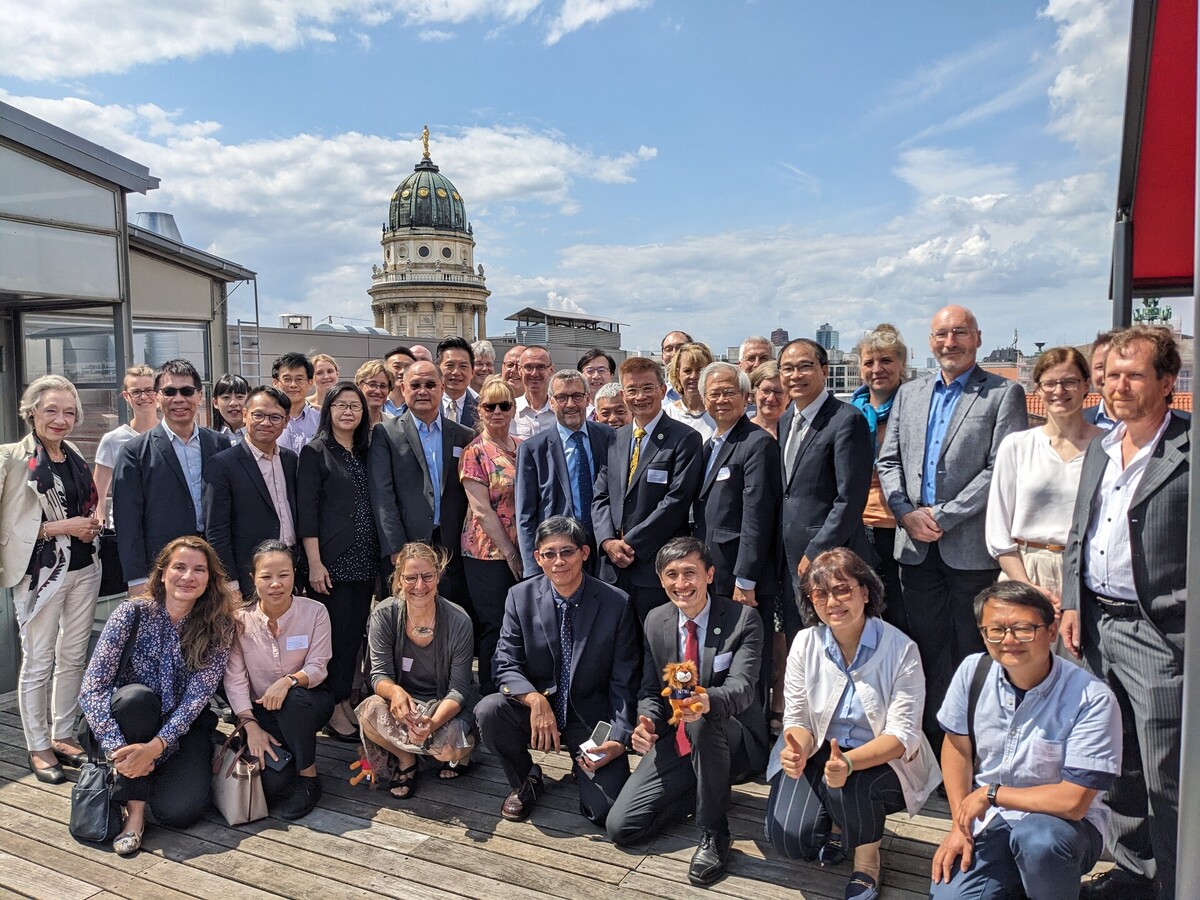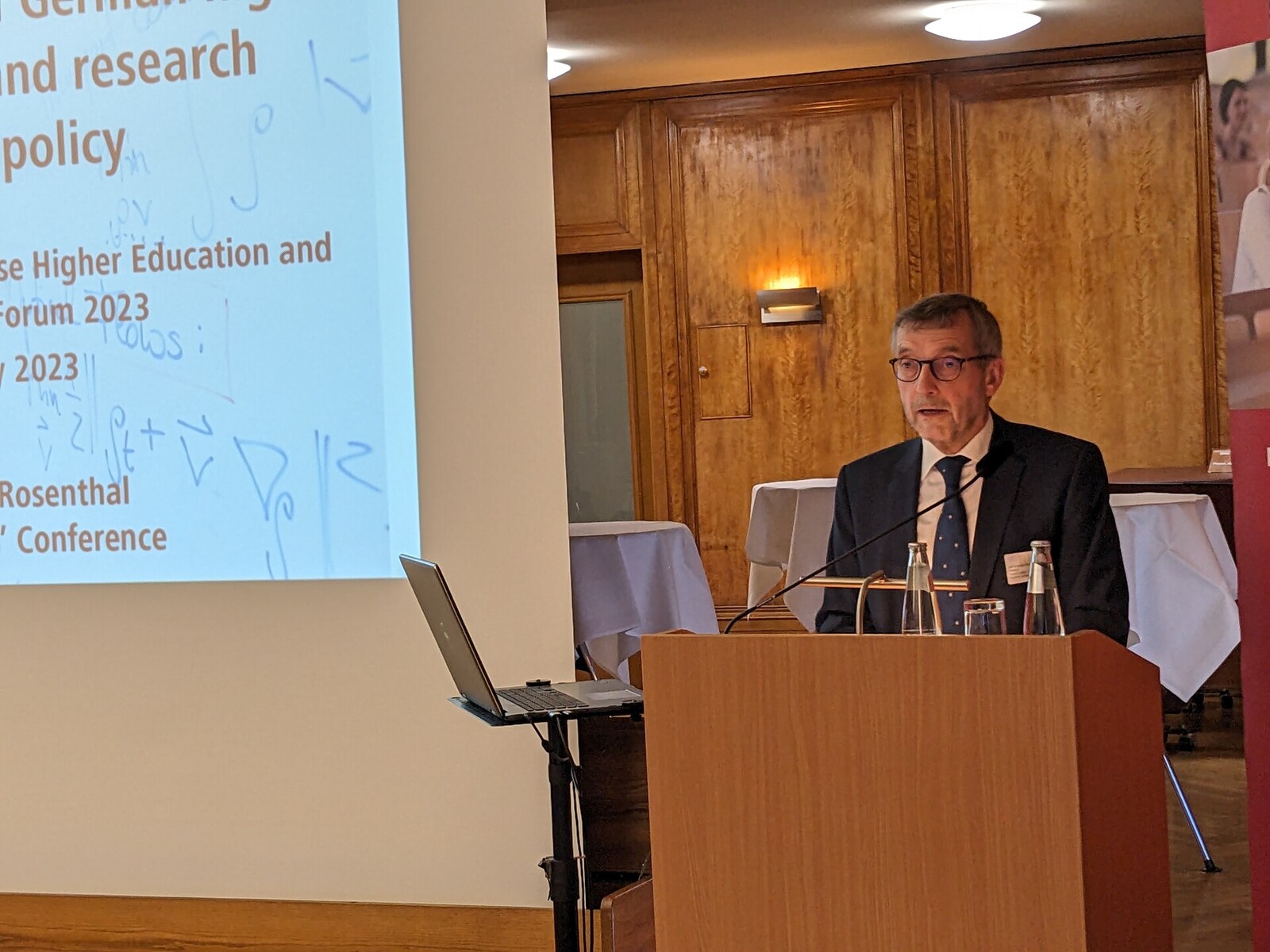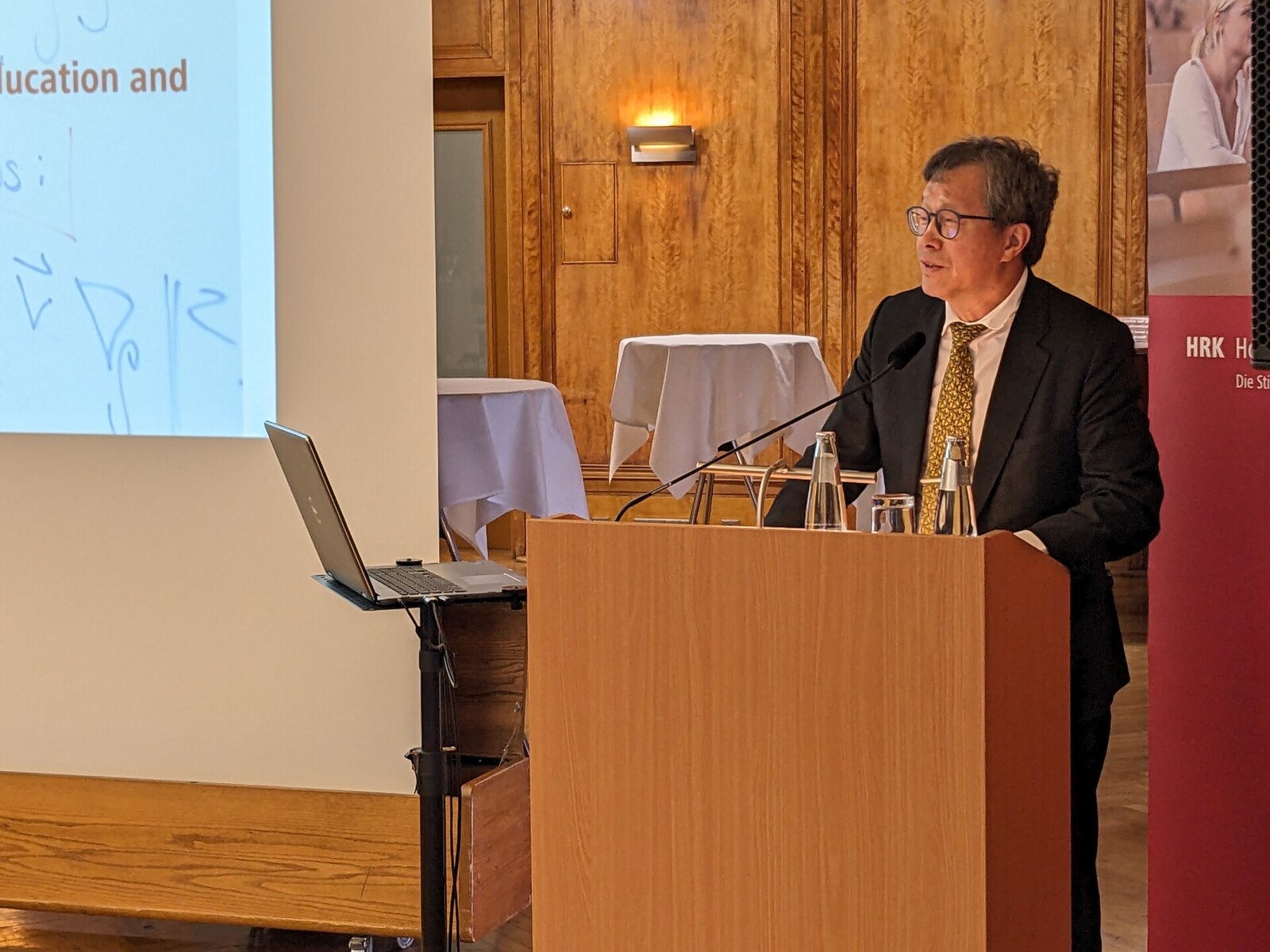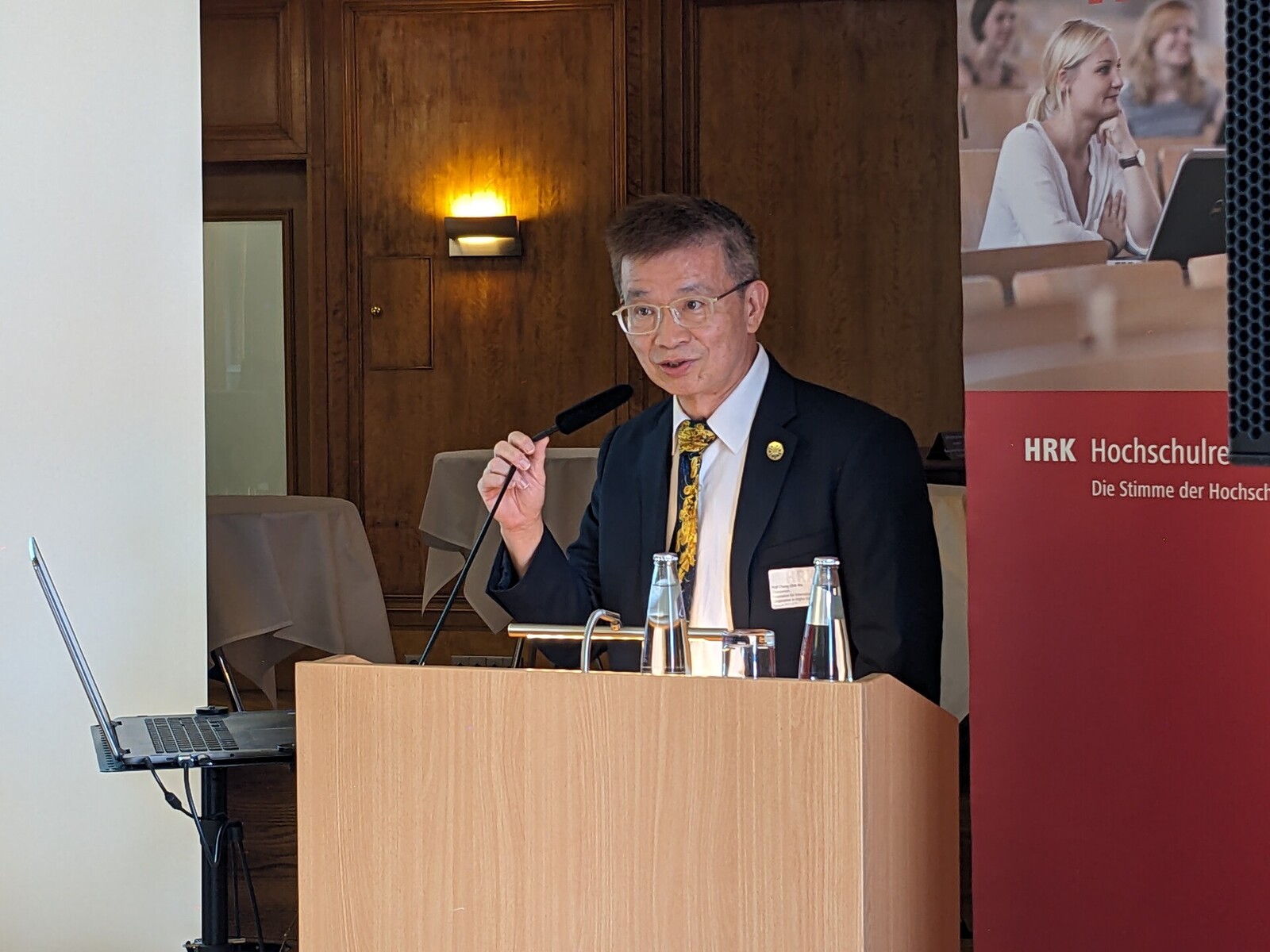
Events
Events
Strengthening Academic Bonds: Over Thirty Universities Participate in Taiwanese-German Higher Education and Research Policy Forum
Strengthening Academic Bonds: Over Thirty Universities Participate in Taiwanese-German Higher Education and Research Policy Forum

2023-07-13
The third Taiwanese-German Higher Education and Research Policy Forum convened at the Berlin-Brandenburg Academy of Sciences and Humanities (BBAW) in Berlin, Germany on July 12-13, 2023. The Forum aims to further strengthen the educational ties between Taiwan and Germany. This Forum is organized by the German Rectors’ Conference (HRK) and co-organized by the Foundation for International Cooperation in Higher Education of Taiwan (FICHET). A total of twenty presidents and vice-presidents from10 Taiwan’s universities, led by Chairperson Cheng-Chih Wu of FICHET, attended this Forum in Germany. 30 representatives from 26 German universities attended the event.
Prof Dr Walter Rosenthal, President of HRK, emphasized Taiwan and Germany have close cooperation in education and research. President Rosenthal of HRK highlighted universities have played an important role in terms of nurturing talent and societal development. President Rosenthal expressed his aspirations for both sides to work together in creating a better future.

Ambassador Jhy-Wey Shieh from the Representative Office in Germany also noted that the inaugural Taiwanese-German Higher Education and Research Forum in 2016 laid a solid foundation for bilateral cooperation and exchanges. Despite the impact of the pandemic in the past three years, both sides have actively promoted collaboration in higher education and deepened academic exchanges, showcasing the stability of the Taiwan-Germany relationship.
Chairperson Wu of FICHET also echoed that the Forum has led to many fruitful collaborations since its inception in 2016. Through this Forum, Taiwan’s and German universities have signed more than five hundred memoranda of understanding, instituted dual degree programs, established alliances such as the TAItech and HAWtech corporation, and enacted many student and faculty exchange and internship programs. On the academic front, nearly six thousand papers have been co-authored between the universities of the two countries, and many research studies in Taiwan history, culture, languages, politics, and economy have been funded through the Taiwan Studies Project. Germany has always been one of the preferred countries for Taiwanese students to study in Europe, with 2,790 currently enrolled in German institutions. Conversely, 846 German students are studying in Taiwan, with over half of them studying Chinese.

Chairperson Wu also pointed out, serves dual purposes: to showcase the latest development in higher education policy and scientific research, and to provide a platform for networking. This event presents an opportunity for attendees to discuss nurturing future talent and addressing shorten the academia and industry gap. It’s also a perfect opportunity to discuss potential partnerships in areas such as semiconductor and Taiwan Huayu Best language exchange program. Wu concluded that Germany has long been an important strategic partner of Taiwan in higher education. Both countries share the universal values of democracy, peace, freedom, and human rights, which lays the foundation for a long-term partnership.
The first day of the Policy Forum saw Vice President of National Taiwan University, Shih-Torng Ding, and President of HRK, Walter Rosenthal, delivering a lecture titled “Current Higher Education and Research Policy Issues.” The lecture explored the framework of bilateral research and higher education cooperation. Following this, Chwen-Tzeng Su, Vice President of National Yunlin University of Science and Technology, and Michael Quante, Vice-Rector of University of Münster, shared their perspectives on university-industry cooperation, focusing on closing the skills gap between academia and industry.
On the second day, a co-lecture by Jhy-Chern Liu, Vice President of National Taiwan University of Science and Technology, and Matthias Barth, Rector of Eberswalde University for Sustainable Development, explored “The role of universities in climate action. .” In the second session, Frank Y-H Ying, Vice President of the National Taiwan Normal University, and Anja Senz, Vice-Rector of the University of Heidelberg, discussed "Opportunities and Trends of Cooperation between Taiwan and Germany in Higher Education,” highlighting possibilities for future academic research between the two countries that can deepen partnership in higher education.
HRK arranged for the Taiwanese delegation to visit Freie Universität Berlin after the forum. The delegation met with Vice President Verena Blechinger-Talcott and 4 other university members. In the meeting, the two sides explored the issues of internationalization, talent cultivation in higher education, student recruitment and retention, and sustainability in the context of a rapidly evolving international society. The visit concluded successfully, characterized by robust exchange between the two sides.





